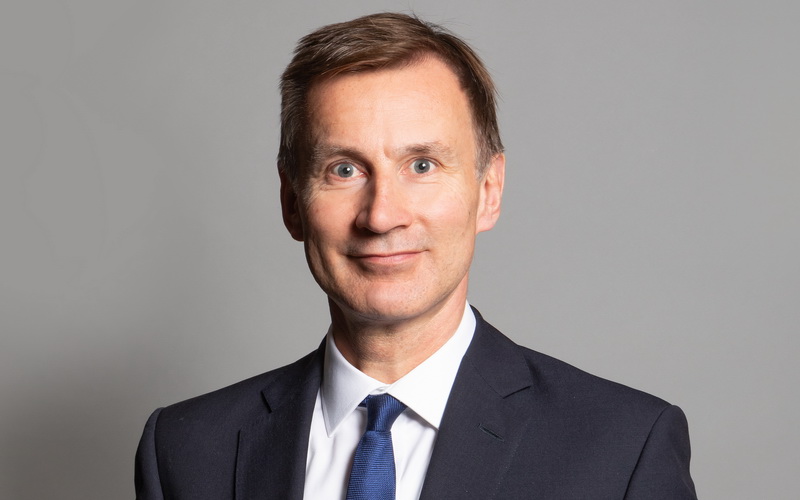Autumn Budget Statement
Autumn Budget Statement 2023 Analysis from our team of experts

After the media speculation of the last few days, it might be easy to say that the Autumn Statement was a bit of a disappointment.

The Chancellor hailed today’s Autumn Statement as a tax cutting statement designed to get people back into work. However, while the headlines may read positively, the changes are fairly slight; perhaps they are only a taste of what he may have reserved for the more politically strategic Spring Statement.
Private Client
After the media speculation of the last few days, it might be easy to say that today’s Autumn Statement was a bit of a disappointment. There were no announcements reducing the main rates of Income Tax or increasing the basic and higher thresholds. There was also no mention of changes to Inheritance Tax. Is the Chancellor keeping these back for a more dramatic Spring Statement or as ‘manifesto tempters’ to encourage people to vote for a Conservative Government in the next election?
National insurance
The headline grabber is the cuts announced to National Insurance (NIC). These have been targeted at middle earners who will benefit the most. The main rate of Class 1 NIC applicable to employees will be reduced from 12% to 10% from 6 January 2024 so that people will see the benefit of this in their pay packets sooner rather than later. The reduction will apply to earnings between £12,570 and £50,270, so those with earnings in excess of the upper threshold will still pay 2% on the excess.
For someone on a salary of £35,400 this will equate to a reduction in their NIC of around £450 per year (or £37.50 per month). While it is not significant, it may be a sweetener with possibly more to come in the Spring Statement.
The self-employed will benefit from a reduction to Class 4 NIC from 9% to 8% on income between £12,570 and £50,270 (although the timing of this lags behind the changes to employee NIC and will not be effective until 6 April 2024). The abolition of Class 2 NIC was also announced. Class 2 currently costs £3.45 per week (or £179.40 per year) and is a relatively cheap way to maintain entitlement to state pension and other benefits. While the Government have assured that low earners will be able to continue to build entitlement to these benefits and pay voluntarily (for example if their income is below the earnings threshold at which they would start to pay NIC), it has yet to be announced how. Currently the only other way to build entitlement (for example if you have no earnings) is to pay Class 3 NIC which is much more expensive at £17.45 per week.
There would have been much more of an impact if an increase to the personal allowance and income tax thresholds had been announced. Bearing in mind that it was only announced in the 2022 Autumn Statement that the thresholds would remain frozen until April 2028 (rather than April 2026), this could have been an easy win. The thresholds have been frozen since April 2021 resulting in fiscal drag and a further estimated 1.3m people paying tax at the higher rate.
Other measures
Other measures were targeted at tax simplification, which are welcomed. Those whose only income is fully taxed under PAYE will be removed from self-assessment irrespective of the level of their earnings (currently if your earnings are more than £150,000 you are required to file a tax return). Unfortunately, that simplification may not extend to those in receipt of a state pension who, while benefitting from the ‘Triple Lock’, may see their income eventually exceed the personal allowance. As their income is not taxed at source, they may well be dragged into the self-assessment regime unless changes are made.
There are changes to the taxation of UK trusts as well. The £1,000 standard rate band has been removed from 6 April 2024 and instead if a trust has less than £500 income it will not be taxed.
Further announcements were made around HMRC’s debt management, with additional investment being made to improve HMRC’s ability to target the recovery of tax owed to them. This is intended to help HMRC better distinguish between those that are genuinely struggling to pay and those who are seeking not to. This is welcome as those who are genuinely struggling are often treated quite harshly.
It would be beneficial if targeted investment could be made into HMRC’s service function as taxpayers (and their advisers) are feeling the pain caused by the lack of HMRC resource when it comes to dealing with them in relation to their, or their business’, tax affairs.
Corporation Tax
While the Chancellor heralded the Autumn Statement as “backing business” and “getting Britain growing”, it was light on substantive changes to the corporate tax landscape. Arguably, the only major announcement, which was trailed widely, was the decision to make ‘full expensing’ of most (but not all) plant and machinery expenditure a permanent relief, offering 100% tax relief in the year of expenditure that would otherwise qualify for 18%, and to allow a deduction of 50% of the cost if the expenditure would have qualified for the special rate of 6%. Full expensing was due to have ended in March 2026. It’s a stretch of the imagination however, to call this “a tax cut of over £10 billion per year” as this only represents an acceleration of tax relief that would otherwise be due over a period of years. However, for the 1% of companies that have capex in excess of the annual investment allowance of £1 million this is likely to still be a welcome announcement. The remaining 99% of companies in the UK will feel no benefit from the announcement at all.
Adding longer-term certainty of accelerated tax relief can only be welcomed, but can any Chancellor really commit to making the relief permanent? The capital allowances regime in particular has undergone significant change over the years, and who is to say what it will look like in just a few years’ time?
There was good news for Freeports and Investment Zones. Tax reliefs for Freeports will be extended to 2031 and tax reliefs for Investment Zones extended from five to ten years.
Following a long period of consultation, the Government will introduce a new, and supposedly simpler, single R&D tax credit scheme, merging the current R&D expenditure credit (RDEC) and SME schemes, for accounting periods beginning on or after 1 April 2024. Broadly modelled on the RDEC scheme, it will offer a single headline 20% taxable credit. The new scheme will also incorporate new rules on work that is contracted out, subsidised R&D, the amount of the PAYE cap, and new definitions for externally provided workers and what constitutes qualifying overseas expenditure.
However, contrary to the proposed aim of simplification, so-called ‘R&D intensive’ SMEs will continue to be eligible for a separate SME scheme. For expenditure incurred on or after 1 April 2023, loss making R&D intensive SMEs will benefit from a higher payable credit of 14.5%. For accounting periods beginning on or after 1 April 2024, the definition of ‘intensive’ will be relaxed meaning that only 30% of the company’s total expenditure must be qualifying R&D expenditure (reduced from 40% in earlier periods).
As announced at Spring Budget 2023, the current film, TV and video games tax reliefs will be replaced by an Audio-Visual Expenditure Credit (AVEC) for film and TV programmes, and a Video Games Expenditure Credit (VGEC) for video games. Film, high-end TV and video games will be eligible for an above-the-line credit (similar to RDEC) of 34%, while animated film and TV and children’s TV programmes will be eligible for a credit of 39%. The credits will be available from 1 January 2024.
VAT and Duty
There is little to add on VAT and Duty, although the freeze on alcohol duty is no doubt welcomed by many, not least long-suffering landlords, brewers and distillers. In the summer, the Chancellor radically changed how alcohol duties were to be calculated resulting in increases in excise duty. Therefore, it is no surprise that duties have now been frozen to avoid further excise duty rises on producers and customers.
Would you like to know more?
If you have any questions about the Government’s Autumn Statement and how it may impact you, please get in touch with your usual Blick Rothenberg contact, or Jonathan Barratt using the details on this page.
For any media enquiries, please contact Caroline Le Jeune or Genevieve Morris.
You can also visit our Autumn Budget Hub, where you can find our commentary and a range of insights to help you better understand how the Autumn Statement may affect you.
Contact Us
You may also be interested in

Autumn Budget Statement 2023: Winners and Losers

Autumn Budget Statement 2023: Live Reaction















